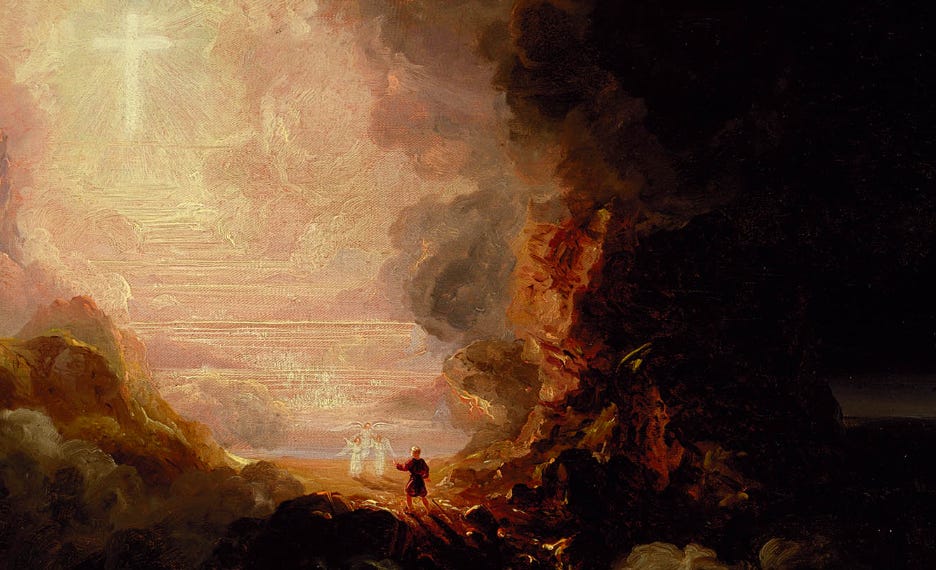Parables of Origin Chaos #1
The Rocks They Thought Were Gold
The world offers many things that shine, but only one thing that saves. This is one of my Parables of Origin Chaos: a story to ponder in the heart. The explanation is included below.
A boy went into the wild with a picture of gold.
Everywhere he looked, he found gold, and he gathered as much as he could.
Just as he was about to leave for the city, a forest-dweller stopped him and asked, “Where are you going with all that rock?”
He looked at him, confused. “You mean gold?”
“No, that’s rock.”
He ignored him and headed into town. He left all of the gold with his family, and they were very pleased.
After some time, he was ready for more. He had already hauled away all their gold, and there was none left.
Once again, he returned to the forest. Just as he was about to leave, the forest-dweller stopped him:
“Look, this is gold. That is rock.”
Now that lump looked exactly as gold should. It gleamed. It sounded like gold. It even seemed to pull the word “gold” from his mouth.
All this time, he had been piling up rocks. Now, at last, he could bring his family real gold!
But the man stopped him and said, “No, sir — the gold stays here. If people want it, show them a picture and give them a map — or bring them with you. But if you bring it back, they’ll just throw it away and ask for rocks.
One last thing!
Be wary, friend. Only a few will come looking. Most who do will stop before the forest and turn around. They’ll talk about the gold, share the pictures, and find comfort knowing it exists — but they’ll never hunt for it themselves. And others, they will simply deny it altogether.”
That is exactly what his family did. When he arrived in the city with a picture of gold and a map, they said, “That’s not gold — this is gold,” as they pointed to a picture of the rock.
No matter what he said or showed them, they wanted the rocks they thought were gold.
But having seen the gold — having held it — the boy could not return for rocks.
So he left for the gold, and he left behind a map. No one has yet come to visit him.
But he knows, when they stand at the gate with all the rocks they thought were gold — and those rocks do not suffice for the fee — they’ll look back at him and remember when he said: “That is rock. This is gold.”
Until then, he weeps for their lost souls.
Explanation to the Parable
The boy represents a true Christian of the Orthodox Church.
The rocks symbolize all the things we cling to in this life — comforts, attachments, false beliefs — the things we mistake for treasure. To us, they are gold, because they are all we have known.
So deeply are we bound to them that when someone presents us with true gold — the Truth of God — we may deny it as rock, and clutch all the harder to what we have always believed was gold.
In our ignorance, and worse, in our pride, we resist being shown otherwise. To admit that what we have built our lives upon may be false wounds our pride too deeply — so we turn away.
But at what cost? According to the parable: at the cost of our very salvation. And even at the cost of earthly peace with those we love. As Christ Himself said:
“Do you think that I have come to bring peace on earth? No, I tell you, but division. From now on, in one house there will be five divided, three against two and two against three. They will be divided, father against son and son against father, mother against daughter and daughter against mother, mother-in-law against her daughter-in-law and daughter-in-law against mother-in-law.”
— Luke 12:51–53



